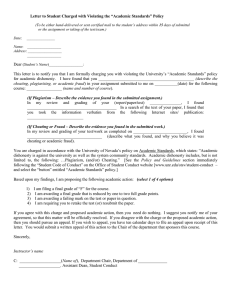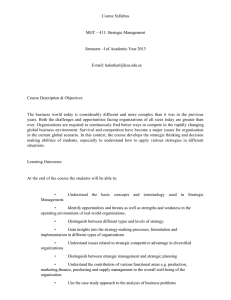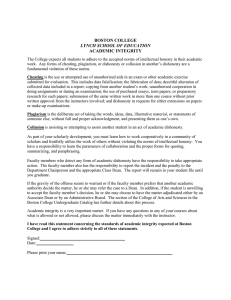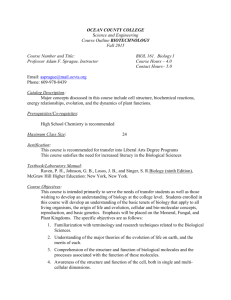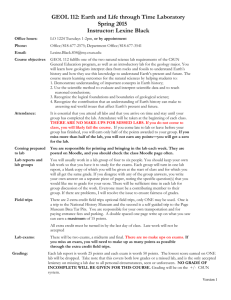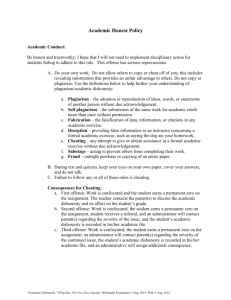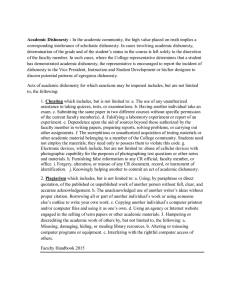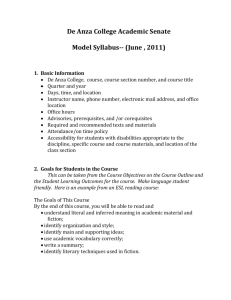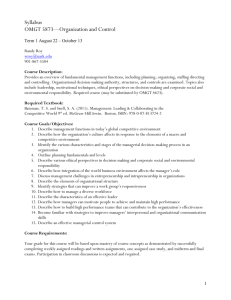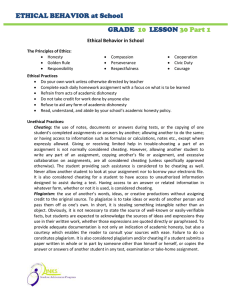Academic Integrity Policy Computer Science Department, Kutztown University
advertisement
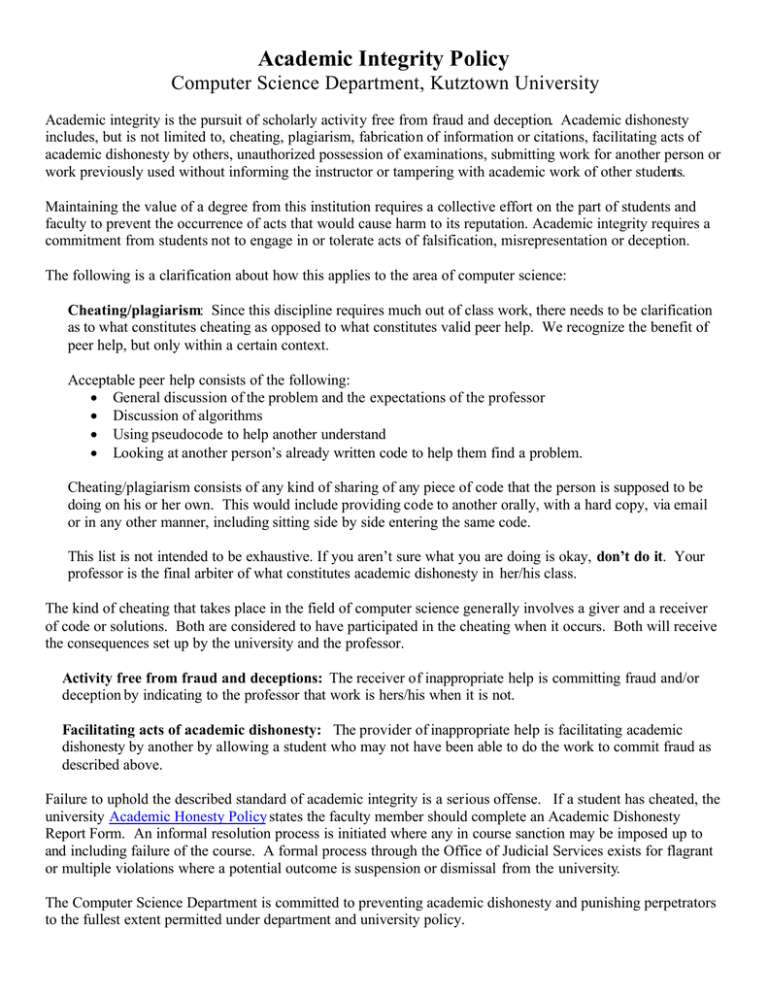
Academic Integrity Policy Computer Science Department, Kutztown University Academic integrity is the pursuit of scholarly activity free from fraud and deception. Academic dishonesty includes, but is not limited to, cheating, plagiarism, fabrication of information or citations, facilitating acts of academic dishonesty by others, unauthorized possession of examinations, submitting work for another person or work previously used without informing the instructor or tampering with academic work of other students. Maintaining the value of a degree from this institution requires a collective effort on the part of students and faculty to prevent the occurrence of acts that would cause harm to its reputation. Academic integrity requires a commitment from students not to engage in or tolerate acts of falsification, misrepresentation or deception. The following is a clarification about how this applies to the area of computer science: Cheating/plagiarism: Since this discipline requires much out of class work, there needs to be clarification as to what constitutes cheating as opposed to what constitutes valid peer help. We recognize the benefit of peer help, but only within a certain context. Acceptable peer help consists of the following: • General discussion of the problem and the expectations of the professor • Discussion of algorithms • Using pseudocode to help another understand • Looking at another person’s already written code to help them find a problem. Cheating/plagiarism consists of any kind of sharing of any piece of code that the person is supposed to be doing on his or her own. This would include providing code to another orally, with a hard copy, via email or in any other manner, including sitting side by side entering the same code. This list is not intended to be exhaustive. If you aren’t sure what you are doing is okay, don’t do it. Your professor is the final arbiter of what constitutes academic dishonesty in her/his class. The kind of cheating that takes place in the field of computer science generally involves a giver and a receiver of code or solutions. Both are considered to have participated in the cheating when it occurs. Both will receive the consequences set up by the university and the professor. Activity free from fraud and deceptions: The receiver of inappropriate help is committing fraud and/or deception by indicating to the professor that work is hers/his when it is not. Facilitating acts of academic dishonesty: The provider of inappropriate help is facilitating academic dishonesty by another by allowing a student who may not have been able to do the work to commit fraud as described above. Failure to uphold the described standard of academic integrity is a serious offense. If a student has cheated, the university Academic Honesty Policy states the faculty member should complete an Academic Dishonesty Report Form. An informal resolution process is initiated where any in course sanction may be imposed up to and including failure of the course. A formal process through the Office of Judicial Services exists for flagrant or multiple violations where a potential outcome is suspension or dismissal from the university. The Computer Science Department is committed to preventing academic dishonesty and punishing perpetrators to the fullest extent permitted under department and university policy.
